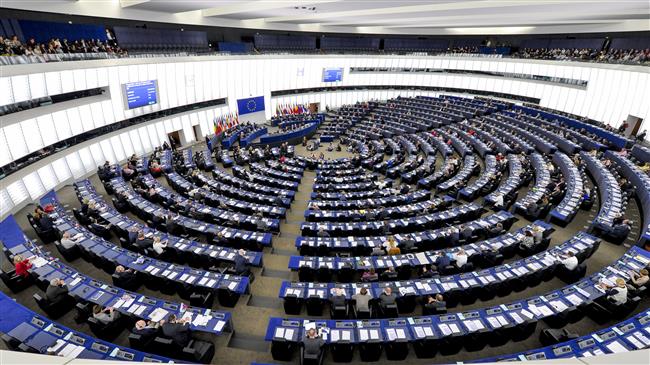
RNA - In a Thursday resolution adopted with 479 votes in favor, 97 against and 58 abstentions, the European lawmakers called on the Bahraini regime "to immediately release all human rights defenders imprisoned for their activities, and in particular Mr. Nabeel Rajab, who has been sentenced to five years in prison for denouncing on Twitter the alleged torture in Bahrain’s Jaw prison and the Saudi Arabia-led coalition airstrikes in Yemen."
The resolution urged Manama to observe international laws and guarantee human rights for prisoners, freedom of expression and peaceful assembly in the lead-up to the country's upcoming elections, suspend military trials for civilians and officially revoke death sentences.
While human rights organizations and activists hailed the resolution, Bahrain's foreign ministry strongly regretted the decision by the European Parliament.
Manama claimed that the resolution was based on false information, noting that the decision was made in disregard of improving political, social and economic situation in the kingdom.
On Monday, Bahraini King Hamad bin Isa Al Khalifah signed off on an amended version of the kingdom’s election law which bans figures of dissolved opposition parties and organizations from running in parliamentary elections.
According to Bahrain’s main Shia opposition group, the al-Wefaq National Islamic Society, which was dissolved by Manama regime in 2016, the legislation deprives more than 50,000 Bahraini nationals from their civil and political right to run in elections.
Bahrain is expected to hold parliamentary elections in fall 2018. Opposition parties boycotted the 2014 polls.
Since February 2011, Bahraini people have been holding peaceful protest rallies on an almost daily basis, demanding that the Al Khalifah family relinquish power and let a just system representing all Bahrainis be established.
Bahrainis have also been complaining against widespread discrimination against the Shia majority in the kingdom.
According to Press TV, Manama has responded to the demonstrations with lethal force, drawing international criticism from rights groups.
Bahraini authorities have further detained human rights campaigners, broken up major opposition political parties, revoked the nationality of several pro-democracy activists and deported those left stateless.
Scores have also been killed and hundreds arrested in Bahrain’s crackdown on dissent.
Human Rights Watch said in a report in May, “Courts convict and imprison peaceful dissenters, including prominent human rights defenders and opposition leaders, and file trumped-up charges against their relatives. Security forces use excessive force to disperse peaceful assemblies.”
847/940